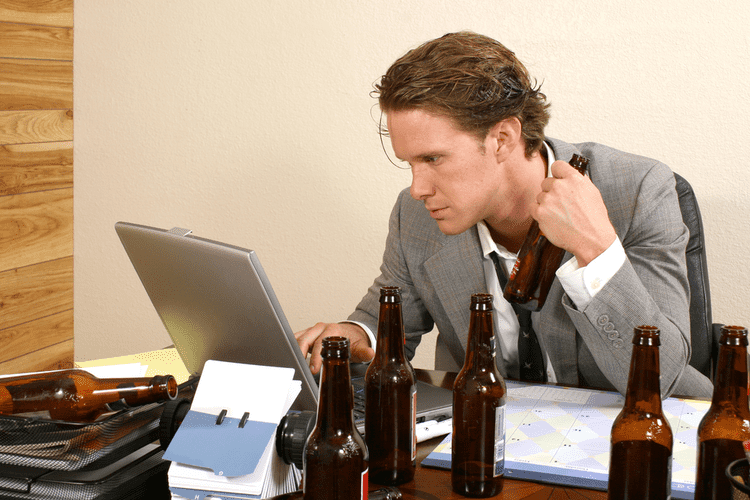From personal struggles with addiction to societal challenges stemming from systemic inequities, feelings of powerlessness can deeply impact mental well-being and social dynamics. It may seem like admitting powerlessness is giving up, but the exact opposite is true. Powerlessness isn’t meant to lead to hopelessness, but rather to a greater sense of powerless over alcohol examples hope and agency in your life.
- You must first admit powerless over alcohol and be honest with yourself about the situation.
- These people can offer understanding and encouragement as you take steps to improve your life.
- These habits reinforce that admitting powerlessness isn’t about weakness—it’s about choosing a fulfilling life.
- After all, helplessness isn’t a concept that solely applies to addiction, although it might be the first step to recovery and sobriety.
- It presumes your own uniqueness or difference, as referenced earlier.
examples of powerlessness over alcohol

For some people the road they traveled getting to the first step in AA has been more than enough to convince them that unconditional surrender is the only option for recovery. The FHE Health team is committed to providing accurate information that adheres to the highest standards of writing. This is part of our ongoing drug addiction commitment to ensure FHE Health is trusted as a leader in mental health and addiction care.

Step 1 of AA: “Powerlessness”, the First of the 12-step Journey
The first step to recovery, according to Alcoholics Anonymous (AA), is to admit that you are powerless over alcohol and that your life has become unmanageable. This crucial acknowledgment is often the hardest for many people, as those who struggle with alcoholism frequently find themselves in denial about the severity of their problem. Admitting powerlessness is a fundamental step in recovery programs such as Alcoholics Anonymous (AA). This acknowledgment serves as a form of strength, enabling individuals to confront their addiction rather than deny its existence.
Why Is Admitting Powerlessness the 1st Step in AA?
- For those of us with alcohol use disorder or substance abuse issues, even one drink can ignite the craving that drives us deeper into addiction.
- These groups use similar principles, but each has its own unique approach.
- It’s not easy to admit this, but if we don’t accept that we are powerless, then we won’t be able to move forward.
- Reach out to Burning Tree for help and discover the path to lasting recovery.
This struggle is common among individuals facing addiction, as the inability to control substance use can be deeply debilitating. Recognizing that these feelings stem from a lack of control over addiction is the first step towards healing. Participants in recovery programs, like Alcoholics Anonymous and Narcotics Anonymous, often share examples and personal stories that highlight the journey from powerlessness to empowerment. It can erode self-esteem and contribute to despair, leading to mental health issues such as anxiety and depression. This sense of helplessness can create barriers to developing healthy coping mechanisms, often driving individuals toward harmful behaviors, including substance abuse. Step One marks the beginning of a lifelong commitment to connection, support, and personal growth.
Untreated alcohol abuse remains a significant public health crisis in the United States, leading to devastating consequences for individuals and communities. According to the National Center for Drug Abuse Statistics, an alarming 140,557 Americans die from the effects of alcohol annually, underscoring the lethal impact of this condition. Understanding power dynamics is essential in evaluating how addiction affects relationships. Power imbalances can significantly influence communication and create challenges in partnerships. Other 12-step programs include Al-Anon, Gamblers Anonymous, Overeaters Anonymous, Sexaholics Anonymous, and others. These groups use similar principles, but each has its own unique approach.
Worksheet to Assess Your State of Powerlessness and Unmanageability
It is linked to a shame-based identity or view of self as fundamentally flawed or bad at the core. Physical punishment, deprivation, social withdrawal, or any other way of punishing yourself increases feelings of despair and hopelessness. And since addictive behaviors are the primary way you cope with distress and pain, you’ll return to those in a heartbeat. If you’re struggling with alcohol use—whether or not you’re in AA—it is up to you to choose how you describe your situation. Ultimately, the important thing is that you are working toward self-improvement and recovery. When we feel powerless, we may feel hopeless, helpless, and stuck.
Understanding Powerlessness in Recovery
When we become helpless to unmanaged family, work, finances, health, or relationships, we experience a real sense of powerlessness. When you start your path in recovery, you’re likely to find that your life is a bit unmanageable. Please don’t feel the need to surrender when you begin; this is an ongoing process, and it might take time to cope with everything that’s happening. Step One is the foundational step in both Alcoholics Anonymous (AA) and Narcotics Anonymous (NA).
This sense of belonging is critical in rebuilding a person’s life and reclaiming a person’s identity beyond addiction. Step One AA acknowledges that not only are you powerless over alcohol, but your life has also become unmanageable as a result. This unmanageability often manifests in various ways, such as deteriorating relationships, declining physical and mental health and a growing sense of despair. Recognizing this unmanageability is crucial because it propels individuals toward seeking help and making lasting changes. Experiencing powerlessness often leads to overwhelming feelings of hopelessness and despair.

It allows individuals to let go of old patterns, accept their limitations, and begin the process of healing. Through this acceptance, individuals can find the support and resources they need to build a foundation for lasting sobriety. This concept of accepting powerlessness is at the heart of many 12-step programs, forming the crucial first step. It’s not about weakness, but rather about honest self-assessment and a willingness to seek https://ecosoberhouse.com/ help. It’s like finally admitting you’re lost and asking for directions – it’s the first step towards finding your way. Unmanageability isn’t just about chaos—it’s about realizing that our drinking, drug use, and addictive behavior have destroyed relationships, damaged our health, and taken over our identity.
It presumes your own uniqueness or difference, as referenced earlier. Submit yourself to the process of recovery and allow yourself the gift of patience while you wait for it to take hold. I am very lost, but slowly working to build my future back and feel ready to be rigorously honest in the process. I know that I have to make the changes to ensure the outcome that will put me right with the world and myself. I make up excuses on why I don’t need to go to meetings this week.